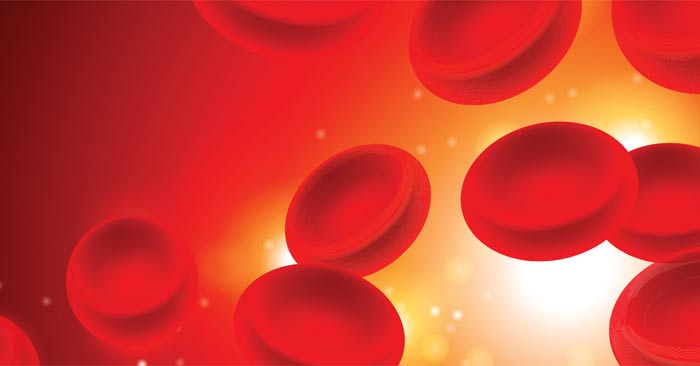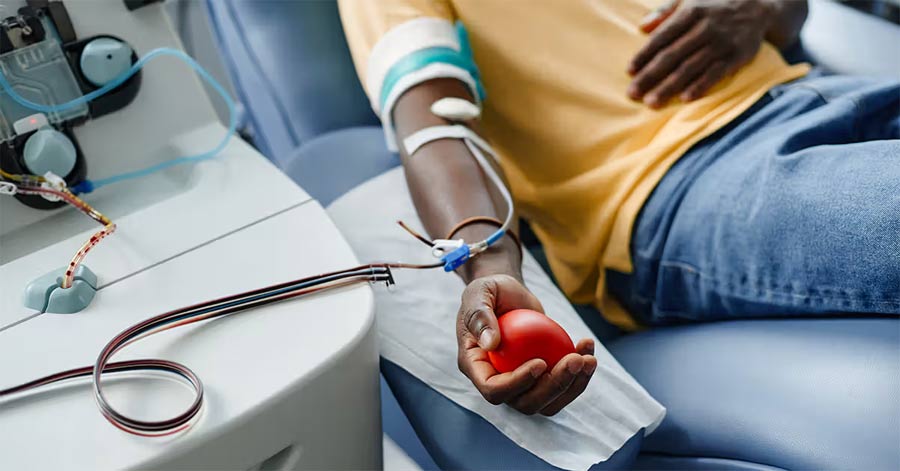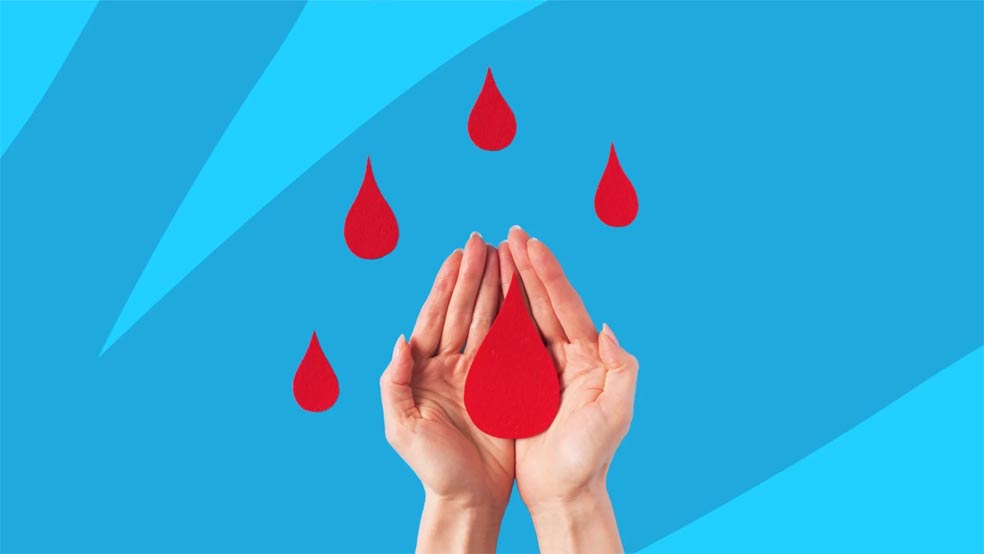Does donating blood cause anemia?
Does donating blood cause anemia? This is a question many people ask before deciding to donate blood. Let's find out the answer together!

Yes, people who regularly donate blood can develop anemia, the most common type being iron deficiency anemia .
Approximately 1.5% of the population in Vietnam participates in voluntary blood donation every year. Nearly 35% of regular blood donors are iron deficient.
How does blood donation cause anemia?
Anemia is when you have low levels of hemoglobin in your red blood cells. According to the National Heart, Lung, and Blood Institute (NHLBI), one of the main causes of iron deficiency anemia is blood loss. When you donate blood, you are essentially losing blood.
Iron plays an important role in maintaining adequate levels of hemoglobin in your blood. This is important because hemoglobin is a protein in red blood cells that helps carry oxygen from the lungs to organs and tissues.

Can you donate blood if you are anemic?
According to the National Institutes of Health, you must have a minimum hemoglobin level before donating blood. These levels are:
- Male: 13.0 g/dL
- Female: 12.5 g/dL
Your doctor will diagnose you with anemia when your hemoglobin level falls below these numbers. That means you can't donate blood. Most blood donation procedures require a health care professional to measure your hemoglobin level.
If you do not meet the minimum requirements, you will have to wait at least 30 days before you are allowed to donate blood. During that time, you can take steps to increase the quality of your blood to meet the minimum donation requirements.
What to do when you have anemia?

Treatment for anemia will depend on the type and severity of the anemia. In most cases, donating blood results in iron deficiency anemia.
The first line of treatment for iron deficiency anemia is iron supplements. Your doctor may also recommend eating more iron-rich foods, such as meat, fish, liver, and turkey, or consuming plant-based foods, such as beans, dark green leafy vegetables, and some cereals.
According to the NHLBI, it usually takes three to six months for iron levels to recover. It is important not to donate blood until your iron and hemoglobin levels have recovered. Blood loss is the main cause of iron deficiency anemia, so it is important to minimize any risk of bleeding or blood loss.
You should read it
- ★ Why is AB the rarest blood group in the world?
- ★ What should people eat when they are short of blood, should they eat nothing?
- ★ Where to buy a blood pressure monitor?
- ★ Losing up to 2 thirds of blood in the body, can humans survive?
- ★ What to eat to supplement blood for pregnant mothers during pregnancy